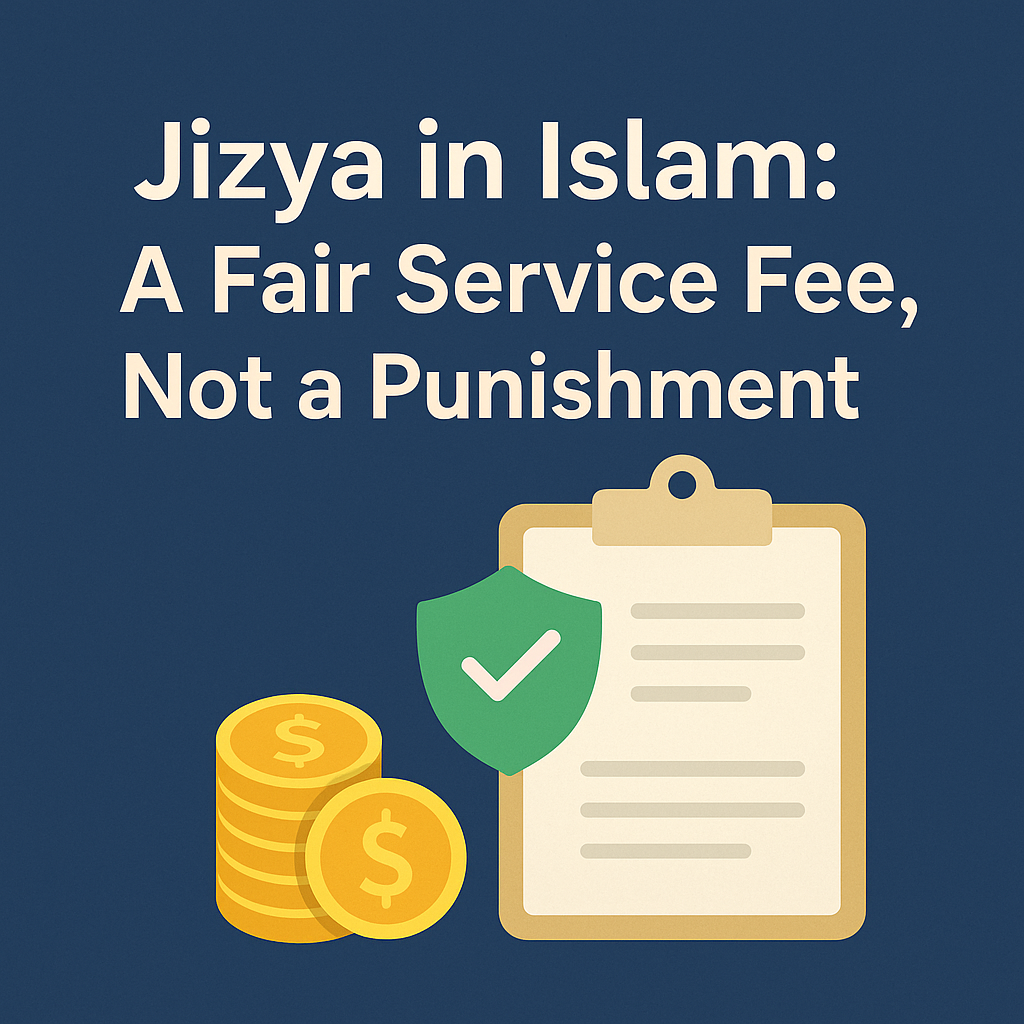
What is Jizya? Why was it collected?
In modern governance, every country collects taxes—income tax, property tax, service fees—to fund public services like police, defense, roads, and justice. Similarly, in early Islamic states, non-Muslim residents (dhimmis) paid a modest tax known as Jizya. This was not a fine or humiliation, but a legitimate service charge in exchange for protection, legal rights, and religious freedom.
🛡️ What Is Jizya?
Jizya was the fee collected from adult, able-bodied non-Muslim men in Islamic territories. In return, the state guaranteed:
- Protection of life, property and religion
- Exemption from military service
- Access to public services and legal rights
This parallels a modern social contract: “The state protects me; I contribute to its upkeep.”

Modern Analogy: Social Security Fee
Much like paying for a gated community’s security or social welfare system, Jizya was the cost for non-Muslims to be excluded from conscription but remain under state protection. Muslims paid Zakat, Ushr, Khums, and other taxes, often higher than Jizya—because they also served in the army and paid zakat as a religious duty.
Calculation & Flexibility
- The amount varied by income and region—wealthier individuals paid more.
- Women, children, the poor, disabled, religious ascetics were exempt.
- If the state failed to protect, Jizya was refunded—just as fees are refunded today for cancelled services.
Colonial Exploitation vs. Islamic Fairness
Colonial powers plundered resources globally—gold, artifacts, cultural heritage transported to London or Paris museums. Islamic governance, by contrast, retained and utilized local resources for public welfare.
Jizya was a symbolic service fee, not looting. The majority of tax revenue remained in the region for infrastructure, justice, and community welfare.
Historical Example & Service Agreement
“As long as we protect you, we collect Jizya; otherwise, we don’t.” — Khalid ibn al-Walid’s Treaty with Sulayba in Al-Baladhuri.
Similarly, Abu Ubayda returned Jizya when the army withdrew, showing adherence to a true public service model.
Linguistic Clarity: “Wa hum Saghiroon”
Qur’an 9:29 says non-Muslims pay Jizya “wa hum saghiroon.” Orientalists misinterpret “saghiroon” as “humiliated.” But classical Arabic indicates it means acknowledgment of authority, not degradation. It signified civic compliance, not moral inferiority—affirmed by scholars like Al-Shafi‘i, Maududi, Razi, and Ashraf Ali Thanwi.
Legal and Social Equality
Non-Muslims were exempt from military duty but enjoyed full legal and religious freedoms. Their churches, temples, and synagogues remained intact and legally protected. They participated equally in trade, justice, and public life. In return, they paid a modest contribution—just like contemporary citizens pay city fees for services.
Conclusion: Jizya as Fair Civic Agreement
Jizya in Islam was not punitive or oppressive. It was a thoughtfully designed civic contract ensuring:
- Protection of life, property, and faith
- Exemption from military obligations
- Civic equality and legal rights
- Economic justice and local resource utilization
In effect, it was the world’s earliest form of a welfare-inspired tax system, centuries ahead of modern welfare states, promoting dignity, civic responsibility, and religious harmony.